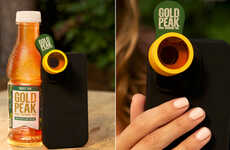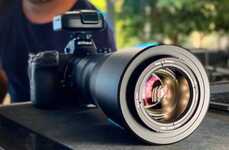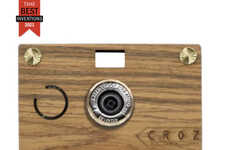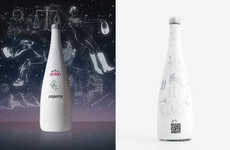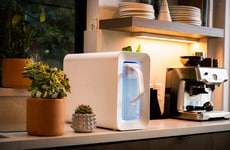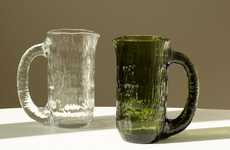
Spa Nederlands Created a Camera with a Lens Made from Its Water
References: youtube & digitaltrends
Water is the archetype of purity, and Spa Nederlands, a Dutch water company, has put together an experiment to creatively demonstrate just how pure its filtered water really is. The company hired Robin de Puy, a professional photographer, to capture a series of images using a camera with a lens made of water rather than glass.
Though a water lens is technologically difficult to engineer, water offers some natural characteristics that help the effort. Thanks to fluid mechanics, water droplets naturally form convex shapes that are perfect for focusing light in the same way as glass lenses. Thus, by applying a water droplet to a repellent glass plate and using electric currents to adjust the shape of the drop, Spa Nederlands was able to provide de Puy with a fully functional, focusing camera that shoots images through a drop of its water.
Though a water lens is technologically difficult to engineer, water offers some natural characteristics that help the effort. Thanks to fluid mechanics, water droplets naturally form convex shapes that are perfect for focusing light in the same way as glass lenses. Thus, by applying a water droplet to a repellent glass plate and using electric currents to adjust the shape of the drop, Spa Nederlands was able to provide de Puy with a fully functional, focusing camera that shoots images through a drop of its water.
Trend Themes
1. Water Droplet Camera Lenses - The trend of using water droplets as camera lenses offers opportunities for disruptive innovation in the photography industry.
2. Fluid Mechanics in Lens Design - The trend of applying fluid mechanics to lens design presents disruptive innovation opportunities in the optical industry.
3. Alternative Materials for Lens Manufacturing - The trend of exploring alternative materials, like water, for lens manufacturing opens up disruptive innovation possibilities for the technology sector.
Industry Implications
1. Photography - The photography industry can explore the use of water droplet camera lenses to capture unique and artistic images, providing a new and innovative experience for photographers and consumers.
2. Optical - The optical industry can leverage the application of fluid mechanics in lens design to create more efficient and high-performance lenses, revolutionizing the field of optics.
3. Technology - The technology sector can embrace the use of alternative materials, like water, for lens manufacturing, leading to lighter and more eco-friendly lenses for various applications, such as cameras and microscopy.
3.5
Score
Popularity
Activity
Freshness

